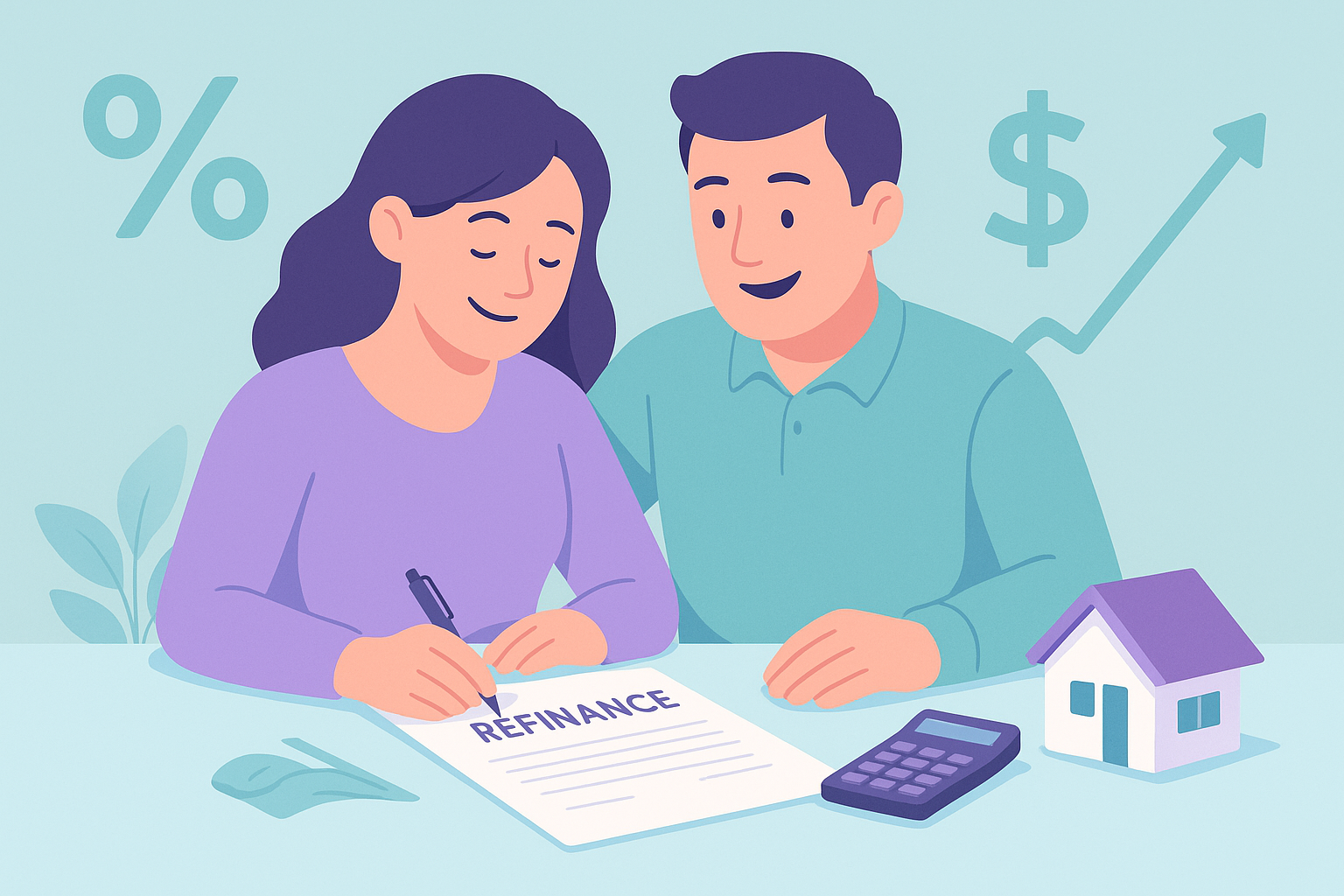
Refinancing Your Mortgage: When and Why to Consider It
Disclaimer: The information in this article is based on general best practices and does not constitute specific financial or mortgage advice. For guidance tailored to your situation, consult with a licensed mortgage professional.
As a mortgage professional, I talk to many homeowners who wonder whether refinancing is the right move for them. Refinancing your mortgage can be a smart financial decision—but it isn't always the best choice for everyone. Here's what I tell my clients when they're considering a refinance.
What Does It Mean to Refinance Your Mortgage?
Refinancing means replacing your current home loan with a new one, usually to get better terms—like a lower interest rate, a different loan length, or to tap into your home equity.
When Does Refinancing Make Sense?
1. Lowering Your Interest Rate
If current rates are at least 0.5% to 1% lower than your existing mortgage rate, you might save thousands over the life of your loan.
2. Shortening Your Loan Term
Moving from a 30-year to a 15-year mortgage can help you pay off your home faster and reduce total interest, though your monthly payment may increase.
3. Switching from Adjustable to Fixed Rate
If you started with an adjustable-rate mortgage (ARM) and want the security of a fixed rate, refinancing can lock in predictable monthly payments.
4. Tapping Home Equity (Cash-Out Refinance)
Need to fund a renovation, pay off high-interest debt, or cover a large expense? Cash-out refinancing allows you to borrow against your home's equity, but keep in mind you'll increase your total loan amount.
5. Removing Mortgage Insurance (PMI)
If your home's value has increased, refinancing may help you eliminate private mortgage insurance.
What Should You Consider Before Refinancing?
- Closing Costs: Refinancing isn't free. Typical closing costs range from 2% to 5% of the loan amount. Make sure the savings outweigh the costs.
- Break-Even Point: Calculate how long it will take for your monthly savings to cover the cost of refinancing.
- Loan Terms: Will you extend your loan and pay more total interest, or are you truly saving over time?
- Your Credit Score: Better credit can get you the best rates. Check your score before applying.
- Current Home Value: A new appraisal may be required.
When Might Refinancing Not Make Sense?
- You plan to move within a couple of years (you may not recoup the costs).
- Your credit has dropped since your original loan.
- The fees and costs outweigh potential savings.
How to Get Started
- Review your current loan statement and rate.
- Shop around with several lenders for the best rates and terms.
- Estimate your new payment, including closing costs.
- Ask for a clear breakdown of all fees and terms.
In my experience, refinancing can be a powerful tool for the right homeowner—but it's important to do your homework and talk to a trusted mortgage advisor. Want to see if refinancing is right for you?
Try our mortgage calculator or check out more tips on our blog.